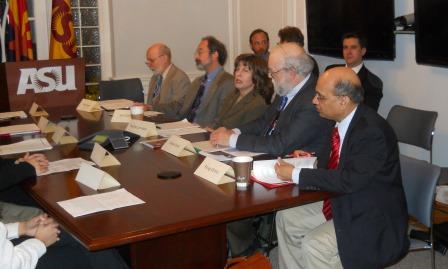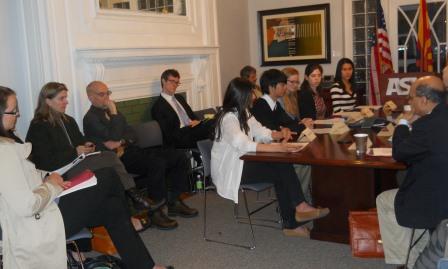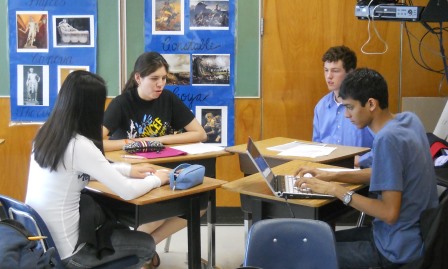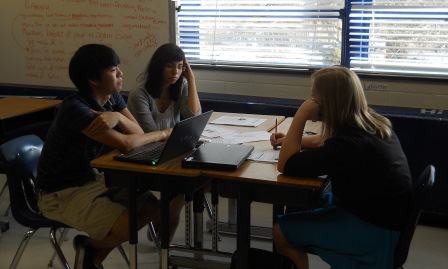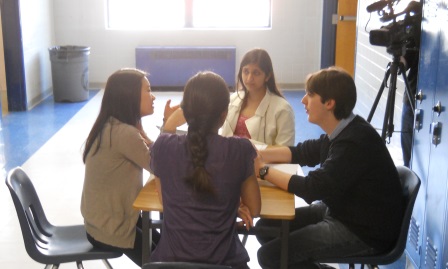Science, Policy and Citizenship Program
Program Areas –
Designer Organisms: The promise and perils of synthetic biology
February 14 – March 7, 2011
Deliberation Scenario:
The students in the Science Policy Program at Thomas Jefferson High School for Science and Technology were presented with this scenario: “We have invited you to take part in a Citizen’s Conference on synthetic biology because the Federal Government wishes to learn about your views on what should be done about researching and developing this emerging field of converging science and technology. The Executive Office of the President is developing a strategy document that it wishes to present to Congress, which proposes to accelerate, with appropriate attention to social, environmental and ethical risks, the pace of current research and development in certain areas of synthetic biology, an area of scientific inquiry and technological development which harnesses techniques and methodologies from a variety of fields including genetics, molecular biology, information technology and nanotechnology, to design and develop complex biological systems that do not occur in nature.” [project memo]
Project Summary:
The students posed as citizens groups from the States of Virginia and Maryland and the District of Columbia. They deliberated face-to-face with each other and online with experts in the field about the prospects, potentials, uncertainties and challenges associated with the research and development of synthetic biology. They had a chance to listen respectfully to each other, review publicly available information, and obtain answers to their questions directly from experts in the field. Reflecting on these deliberations they formed a set of recommendations about how the research and development of these technologies should or should not be managed.The students then prepared written testimonies and presented them in a mock interagency panel comprised of: Parag Chitnis, National Science Foundation; Daniel Drell, US Department of Energy; Mark Segal, Environmental Protection Agency; Jeff Schloss, National Institutes of Health; and Rachel Levinson, Arizona State University.
Project Timeline:
- Monday, February 14: Briefing and overview of the project
- Friday, February 18: Initial face-to-face deliberation in class within groups
- February 21 – 28: Online deliberation with experts
- Wednesday, March 2: Final face-to-face deliberation in class within groups
- Monday, March 7: Testimony to Mock Interagency Panel and the public
Project Documents:
Partners:
A Project of the Consortium for Science, Policy & Outcomes at Arizona State University, in collaboration with the science policy program at Thomas Jefferson High School for Science and Technology, the Science and Technology Innovation Program at the Woodrow Wilson International Center for Scholars and ECAST – Expert and Citizen’s Assessment of Science and Technology Network.

